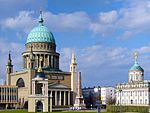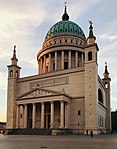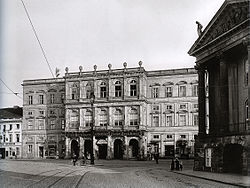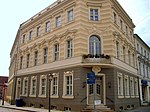City Palace, Potsdam
1669 establishments in the Holy Roman EmpireBaroque architecture in PotsdamBuildings and structures in Germany destroyed during World War IIBuildings and structures in PotsdamDemolished buildings and structures in Germany ... and 6 more
German Landtag buildingsHouses completed in 1669Houses completed in 1752Palaces in BrandenburgRebuilt buildings and structures in GermanyRoyal residences in Brandenburg
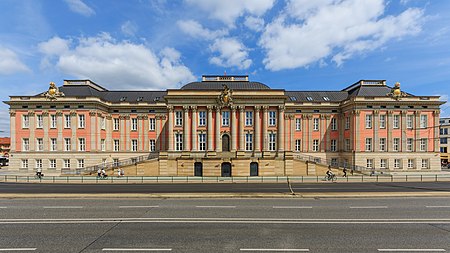
The Potsdam City Palace (German: Potsdamer Stadtschloss) is a building in Potsdam, Germany, located on the Old Market Square, next to the St. Nicholas' Church (Nikolaikirche). It was the second official residence (the winter residence) of the margraves and electors of Brandenburg, later kings in Prussia, kings of Prussia and German emperors. Heavily damaged in World War II and later dismantled by the East German communist regime, the partial reconstruction, with historic facades and a modern interior, was completed in late 2013. The building has since served to house the parliament of the federal state of Brandenburg.
Excerpt from the Wikipedia article City Palace, Potsdam (License: CC BY-SA 3.0, Authors, Images).City Palace, Potsdam
Alter Markt, Potsdam Historische Innenstadt
Geographical coordinates (GPS) Address Website External links Nearby Places Show on map
Geographical coordinates (GPS)
| Latitude | Longitude |
|---|---|
| N 52.394722222222 ° | E 13.060555555556 ° |
Address
Stadtschloss - Landtag
Alter Markt 1
14467 Potsdam, Historische Innenstadt
Brandenburg, Germany
Open on Google Maps
